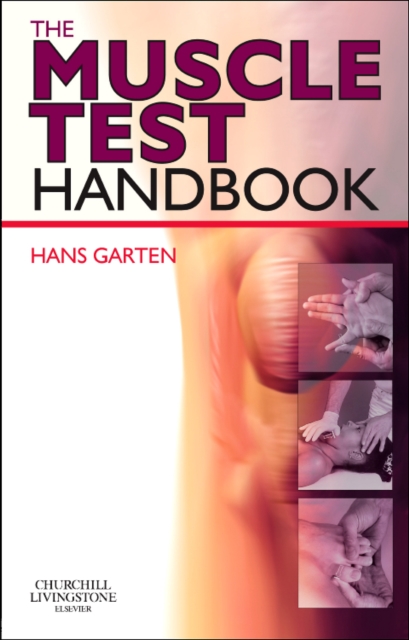
The Muscle Test Handbook : Functional Assessment, Myofascial Trigger Points and Meridian Relationships Spiral bound
by Joseph (Professor of Post-Graduate Medicine, at the School of Social Rehabilitation, Moscow Shafer, Hans Garten
Spiral bound
Description
Especially prepared for the international audience, the English language edition of this highly successful handbook describes Professional Applied Kinesiology muscle testing procedures.
A departure from the classic understanding of muscle testing for weakness and rehabilitation, these procedures can be used for detecting more subtle, functional abnormalities.
Included within the chapters are stretch tests and post-isometric relaxation procedures for the hypertonic, shortened muscle.
Muscle anatomy and physiology are briefly recapped in order to enhance reader comprehension.
The Muscle Testing Handbook describes testing procedures for almost 100 individual muscles in a unique, quick reference, template approach.
In close collaboration with Dr. Garten, the German edition has been adapted for the English-language audience by Dr. Shafer, an American chiropractic colleague. This book is ideal for use by manual therapists, physiotherapists, osteopaths, chiropractors, sports scientists and neurology department staff worldwide. Clearly describes modern muscle test procedures The individual aspects of each muscle are easily compared by the use of well-illustrated templated descriptions A double-page spread design allows the reader a rapid, at-a-glance access to essential information Muscle anatomy and function are succinctly recapped in order to facilitate a complete understanding of the relevance and applicability of the individual test Classic Applied Kinesiology muscle tests for detecting functional abnormalities are well described along with stretch testing and post-isometric relaxation procedures for hypertonic, shortened muscles The importance of postural analysis for the assessment of specific muscle dysfunction is discussed and plainly described Illustrates painful spondylogenic reflex points (areas) for each muscle The role of distal acupuncture points and tendinomuscular meridians in maintaining normal muscle and muscle chain function are noted in accompanying diagrams The most commonly found trigger points, their referred pain patterns and relationship to nearby acupuncture points are clearly illustrated for each muscle Perfect for use in orthopaedics, neurology, general medicine, physiotherapy, chiropractic and osteopathy
Information
-
Out of stock
- Format:Spiral bound
- Pages:304 pages
- Publisher:Elsevier Health Sciences
- Publication Date:19/04/2013
- Category:
- ISBN:9780702037399
Information
-
Out of stock
- Format:Spiral bound
- Pages:304 pages
- Publisher:Elsevier Health Sciences
- Publication Date:19/04/2013
- Category:
- ISBN:9780702037399






